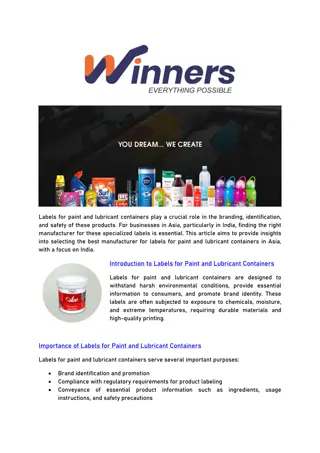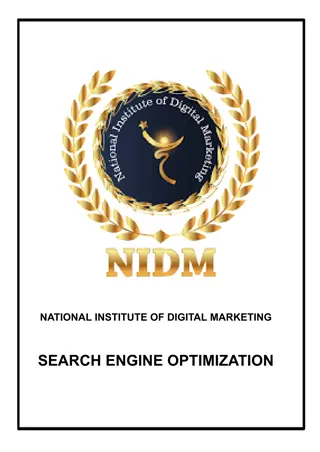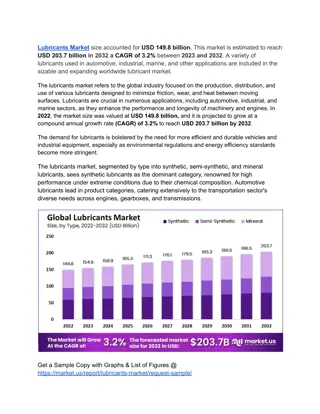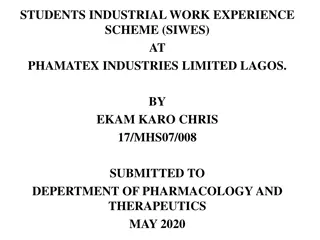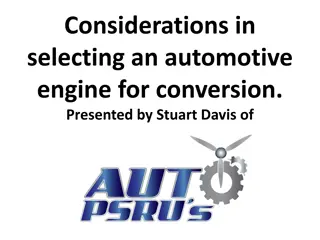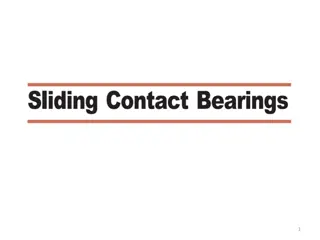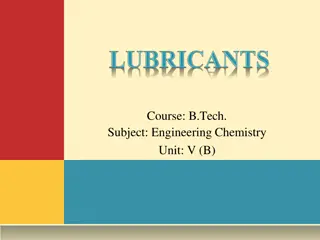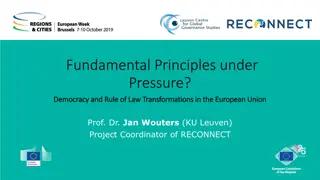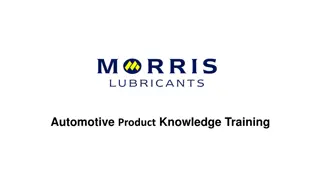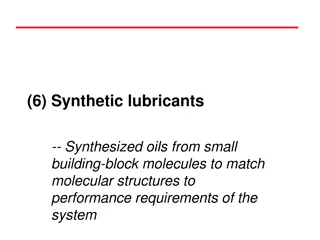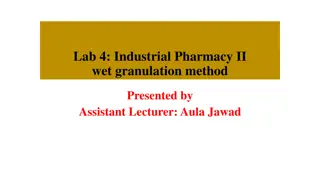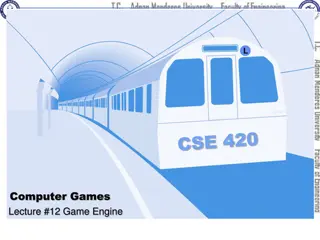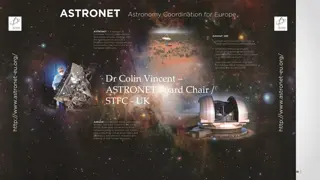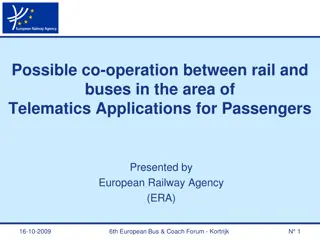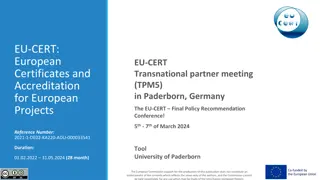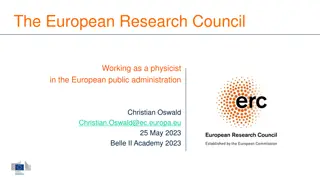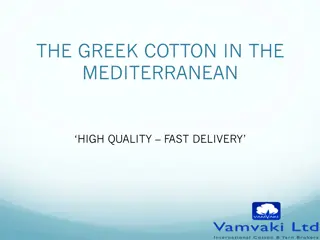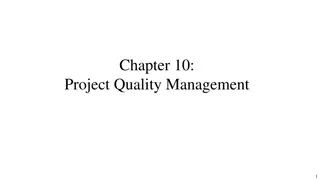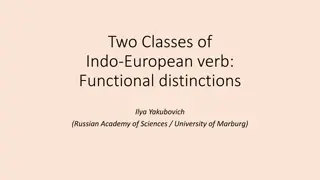Understanding ATIEL and European Engine Lubricants Quality Management
Introduction to ATIEL, a non-profit association representing leading European and international engine oil manufacturers. ATIEL focuses on promoting technical consensus, product stewardship, and sustainability to enhance engine oil performance. The association also delves into the development of quality guidelines, best practices, and industry tests. Key reference points include ACEA Sequences, which are quality standards for engine lubricants in light and heavy-duty vehicles. The European Engine Lubricants Quality Management System plays a crucial role in ensuring quality compliance with ACEA standards, bringing together key stakeholders for proactive quality management.
Download Presentation

Please find below an Image/Link to download the presentation.
The content on the website is provided AS IS for your information and personal use only. It may not be sold, licensed, or shared on other websites without obtaining consent from the author. Download presentation by click this link. If you encounter any issues during the download, it is possible that the publisher has removed the file from their server.
E N D
Presentation Transcript
Introduction to ATIEL ATIEL is a non-for-profit association representing the combined knowledge and experience of leading European and international engine oil manufacturers and marketers ATIEL promotes consensus on key technical, product stewardship and sustainability issues, ensuring that engine oils continue to contribute to improved wear protection, deposit control, lower emissions, and fuel economy CO2 emissions efficiency Monitors current and future technical trends and regulatory programmes Acts as a focal point for technical issues relating to the performance and environmental demands of engine oils.
ATIELs technical activities for QUALITY Developing guidelines and best practices for formulation of engine lubricants Promoting superior quality products in the market Supporting auditable quality management systems, carrying out quality surveys to assess levels of quality compliance in the marketplace Contributing to development of industry engine and laboratory tests.
Key reference: ACEA Sequences ACEA European Oil Sequences are quality standards for engine lubricants used in light duty passenger cars & heavy duty vehicles. ACEA Oil Sequences are updated regularly to address: Changes in legislation Changes in engine design & technology Changes in fuel composition (eg biofuels) ACEA requires engine lubricants to be developed in accordance with the European Engine Lubricant Quality Management System (EELQMS).
European Engine Lubricants Quality Management System - Proactive industry response to improve quality management in support of ACEA Oil Sequences. - Brings together key stakeholders ACEA, ATIEL, ATC (additive developers) & CEC (test method standards) - Detailed process and structure for lubricant development, production and performance validation. - A voluntary system but the ONLY system, which provides assurance of the quality of engine lubricants on the market that claim to meet the performance requirements of ACEA Oil Sequences. - Multiple benefits (OEMs, users, lubricants and additives industry) - Code of Practice clear guidelines to comply with the requirements of ACEA Oil Sequences.
ATIELs technical activities for PRODUCT SAFETY Developing generic exposure scenarios and guidance to assist lubricants companies to comply with EU s REACH regulation Developing common practices on health, safety and environmental issues SUSTAINABILITY Carbon Footprint and renewable carbon content LCA greenhouse gas accounting methodology Recyclability- RRBS (re-refined base stock) In use benefits
A significant impact on fuel economy Lubricants have made a significant direct and indirect impact on reducing EU CO2 emissions thru increased fuel efficiency of road vehicles since 2005. Avoided emissions account for 2.2 up to 4.1 percent of reduction per year in road transport CO2 emissions to 2020. lead to an additional 1.0 1.3 percent reduction by 2030.
Decarbonizing road transport Fit for 55 (ETS2, AFIR, Trans-European Transport Network) Average CO2 emissions from new cars/vans and lorries reduction Ban for new cars and vans from 2035 New EC proposal on CO2 emissions from HD (-90 % emissions by 1 Jan 2040) Greening Freight Transport proposal (HD weights and dimensions) EC proposal amending directive on road charging to take into account the effect of trailers on the CO2 emissions of HD in charging schemes EURO 7 standard Which fuels ?
EU HSE regulatory landscape Towards a zero-pollution ambition for a toxic free environment EU Chemical strategy for Sustainability: Innovating for safe and sustainable EU chemicals Stronger EU legal framework to address pressing environmental and health concerns Simplifying and consolidating the legal framework A comprehensive knowledge base on chemicals Setting the example for a global sound management of chemicals Industrial strategy for a clean and circular economy Circular Economy Action Plan: Green Claims Directive Methodologies to track and minimise the presence of substances of concern in recycled materials and articles made thereof Sustainable Product Policy Initiative Essential requirement for packaging (as part of Reducing packaging waste initiative review of rules), EU Ecolabel regulation Restriction of intentionally added microplastics Harmonised information systems for the presence of substances of concern Waste Framework Directive (used oil) atiel.org
EU Chemicals strategy for sustainability and the industry impact atiel.org
Changes: Engine Oil Specifications driven by Emission Legislation Initially focus on SO2, NOx and PM emission reduction Now more focus on CO2 Emission Reduction Evolution main Viscosity Grades 15W-40 10W-40 5W-30 0W-20 Group I Group II Group III Group III Group IV Group III/III+ Group IV Group I Implications for base oil requirements Increased use of Group II and III base oils in Light and Heavy Duty Very limited BOI (Base Oil Interchange) guidelines for Group II and III Current guidelines focused around Group I base stocks Interchange Guidelines did not hold pace with specification evolution
The Complexity Challenge From 8 to 12 categories
Effective Navigation Proactive approach Compliance Optimization Adaptation
The industrys proactive approach: harmonized methodology for PCFs for lubricants and greases
Background: Footprints address the needs of comparable Climate change Paris agreement governments working on regulations companies seeking level playing field PCF a great tool to assess impact of a product system on climate change ISO 14067 high level standard but still allows different approaches Lubricants industry wanted to develop more accurate methodology .
Carbon Footprint Scopes in the Lubricant Industry Partnering with the complete value chain EU-level: UEIL, ATIEL, ELGI International Level: API, ILMA, ALIA, ALA, NLGI ATC, ATIEL, GEIR, APAG OEMs GEIR Min B/O- Manufacturers Lubricant Developing and Manufacturing Companies Syn. & Biob. B/O- Manufacturers Exploration / Mining / Farming / Tier-n Pre- Suppliers Used Oil Collectors / Recyclers Lubricant User / Use Phase Re-refiners Additive Manufacturers Lubricant Blenders / Marketers Specialty Manufacturers Cradle-to-inboundGate* Gate-to-Gate* Cradle-to-Gate** Cradle-to-Grave (or Cradle) Downstream Working Group Carbon Footprint Working Group Communications Working Group 22
Engagement at all stages of the legislative process: from the early stages of policy formulation .. 1.Monitor policy developments 2.Engage with policy makers - Establish communication with regulatory authorities to provide technical input ensure sustainability goes hand in hand with performance 3. Response to be based on sound science and apply full LCA where appropriate; take a global, not just a regional, view of supply and demand balances; be technologicallyneutral and performance driven
to adoption. 1. Compliance Assessment 2. Reaching out to authorities for harmonized interpretation and compliance 3. Testing 4. Upgrades 5. Training and Education 6. Monitoring and Reporting 7. Performance Optimization 8. Culture of continuous improvement in lubrication practices
Opportunities 1. Encouraging innovation 2. Drive the process 3. Green Transportation 4. Specialized Lubricants 5. Growth and jobs 6. Circular economy.
Summary 1. Lubricants industry is in a dynamic period 2. We have to continuously adapt and innovate 3. Complex and ambitious regulatory framework emerging, EU Green Deal means we are in for a long period of activity to become ever-more sustainable and transparent as an industry 4. We have the technical expertise to advise the regulators deciding together to decide better 5. Continued collaboration within the entire lubricants value chain and other relevant stakeholders is key 6. A proactive approach is key to effectively navigate. 7. Our industry can provide solutions to the green transition
ATIEL ASBL Rue Belliard 40 B 1040 Brussels Tel : +32 2 470 06 20 04 E-mail : info@atiel.eu EU Transparency Register number : 673525317243-17 Website: https://www.atiel.eu EELQMS website: https://www.eelqms.eu/



